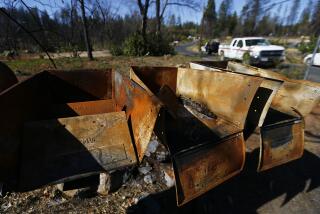Auto Insurance on a Collision Course
California’s auto insurance system has been a mess for so long that one would have thought it impossible to jolt this state’s drivers, already beleaguered by high rates, out of their cynicism about insurance reform. But Insurance Commissioner Roxanni Gillespie may have done it when she authorized a staggering 85% rate increase in the state’s assigned-risk plan.
The assigned-risk system allows drivers unable to obtain coverage in the regular market to buy coverage from a pool in which all the state’s auto insurance companies share the burden. It was designed for drivers with poor records, but has become a haven for many good drivers who simply can’t afford regular coverage. For policyholders in Los Angeles, Gillespie’s rate increase could mean a jump of about $500 in their annual insurance bill, even if they have a good driving record. Those with poor driving records could pay as much as $1,000 more per year.
Of course, no one in his or her right mind is going to fork over that kind of money unless he or she absolutely has to. And with the state’s strict enforcement rules for mandatory auto insurance due to lapse Jan. 1--thanks to continued inaction by the state Legislature, which allowed the system to deteriorate--what’s more likely to happen is that the number of uninsured motorists is going to increase. So down the road, so to speak, those of us who want to obey the law, or simply protect our financial well-being by carrying sufficient liability insurance, will pay more for uninsured-motorist coverage, already the biggest chunk of the typical auto insurance bill.
Talk about a no-win situation. Nobody came out ahead on this one. Not good drivers or bad drivers. Not the insurance companies, who make a credible case that they are losing money on the assigned-risk plan and need some kind of rate increase to keep it afloat. And not politicians, because Gillespie’s decision may feed the anti-incumbent mood growing among voters in California and elsewhere. Only the trial lawyers, who have blocked all efforts to enact a no-fault insurance system in this state, have little to complain about. The tort system that lets them make money from even minor automobile accidents remains unchanged.
Whatever the political shortcomings of Gillespie’s decision, it’s a useful wake-up call to remind us all that the auto-insurance mess is still with us two years after voters enacted Proposition 103 in an effort to reform the system. It might even prod a new Legislature, governor and insurance commissioner to get down to the business of bringing California a real no-fault insurance system, complete with a no-frills auto insurance policy that even the poorest driver can afford.






